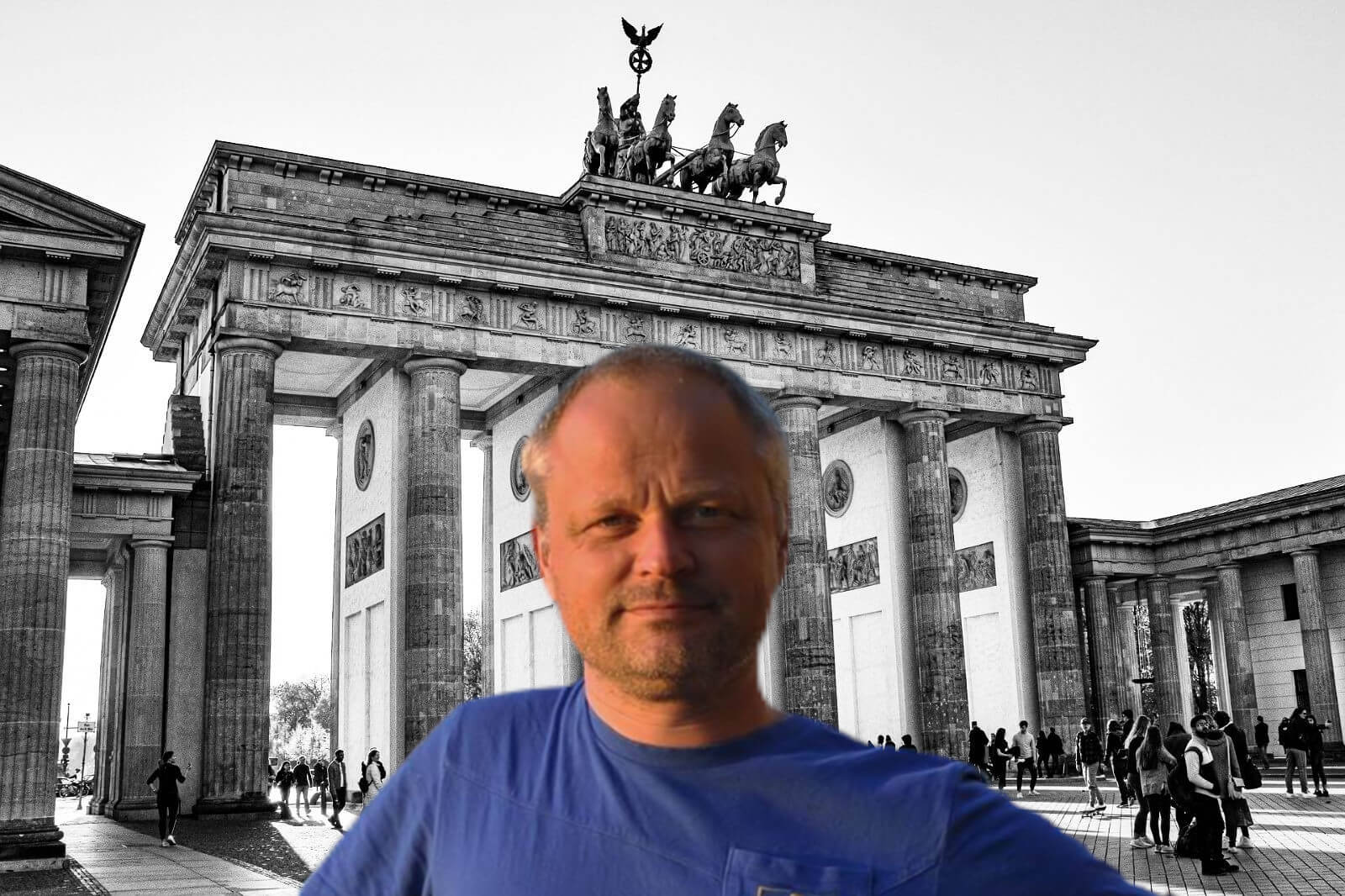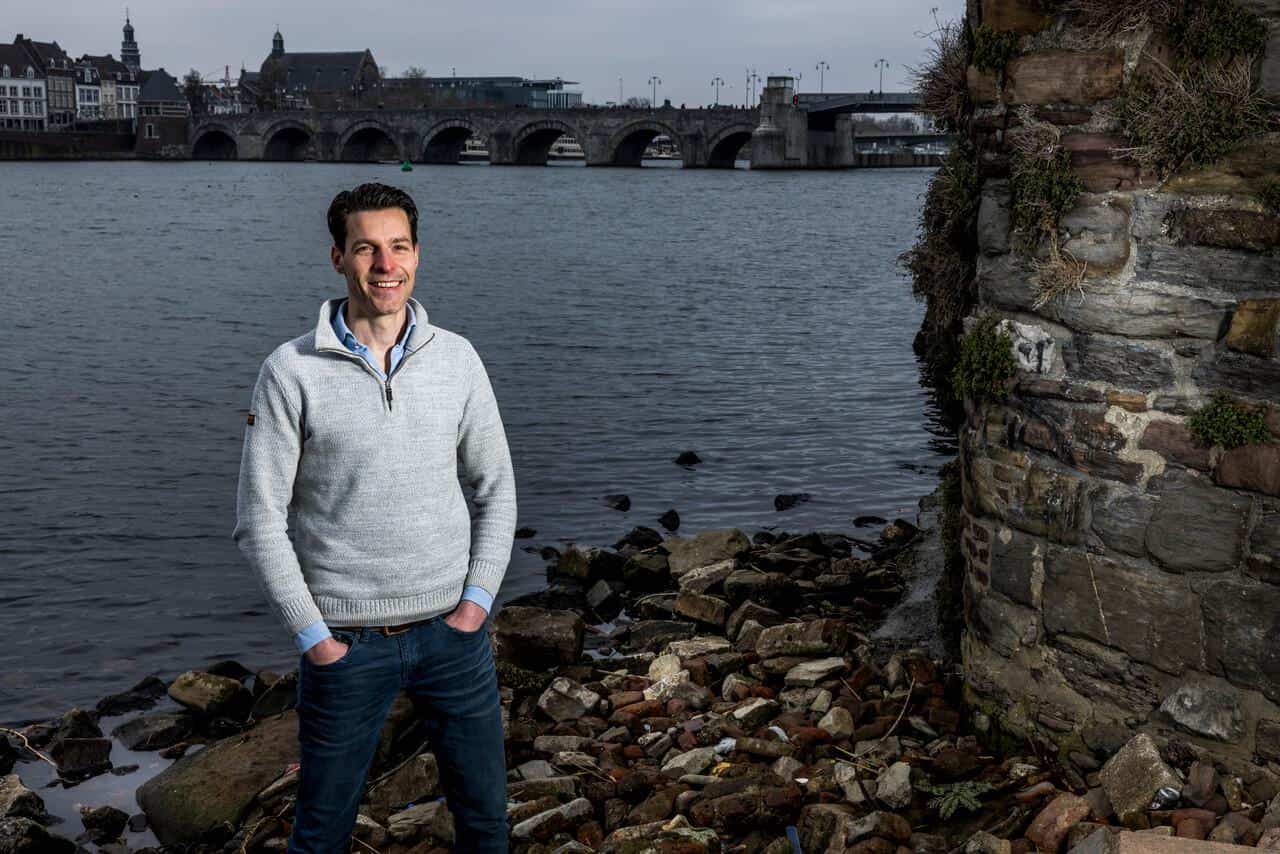
It is a problem that sailors are all too familiar with. Every few years their boat needs to be taken out of the water because the cargo area is covered in algae, mussels and other underwater creatures that slow down and damage the ship. Nothing but scratching, burning, sanding and re-applying the toxic layer of antifouling paint until it is damaged again.
It is a miserable circle for both water sport enthusiasts and the environment, because antifouling is one of the most polluting and toxic types of paint imaginable. But fortunately, Dutchman Rik Breur has discovered an environmentally friendly alternative – a self-adhesive carpet that has exactly the same effect as the antifouling paint, but that is much less harmful to the environment.
It is such a sensation that it was nominated in one of the five categories of the European Inventor Awards 2019, which will be held on 20 June in Vienna. Other Dutchmen who are nominated are Alexander van der Lely and Karel van den Berg in the category Industry, with “the Astronaut”, a new type of milking robot.
Great honour and opportunity
“A great honor”, is what Breur calls it on the phone. And a fantastic promotion for his fairly new company. So far, he has covered roughly 100 pleasure yachts and 25 professional ships with his carpets, but his ambitions are much greater. “There is a huge increase in the need for environmentally friendly alternatives, especially among private consumers. In addition, the cost of our carpets, at €30 per square metre, is not much higher than that of traditional antifouling paint. Moreover, because of the durability of the material, there is a much smaller chance that the boats need to be taken out of the water.”
Selling to the commercial shipping industry has been somewhat less successful. According to Breur, there is a certain amount of hesitation. First of all, the companies wish to have more transparency about the costs and the possible higher energy consumption for sailing. But Breur believes he has made a lot of progress in this area over the past ten years.
An avid diver
It all started at the end of the nineties when he, a scientific researcher and an avid diver, first became fascinated by the way in which sea urchins in particular protect themselves against the growth of algae. They use their prickly skin to do this. Breur tried to imitate the skin of the sea urchin in the laboratory, and in 2006 he designed a first practical application for fishing nets and cages.

Once that was reasonably successful, he shifted his focus to ships. Ten years of research finally resulted in a carpet consisting of numerous small, constantly moving nylon needles. He lovingly calls it a “prickly skin” that can be attached to the hull of any ship.
In addition to nylon fibres, the skin consists of a two-component water-based adhesive and a polyester film. Since the fibers are located so close to one another, nothing can get in between. Moreover, they are designed in such a way that they hardly slow down the ship at all.
Award in the SME category
The prickly skin, patented under the name Finsulate, previously won the Dutch Hiswa Award 2018 for innovations in water sports. And now it also has a European nomination under its belt that could attract a lot of international attention and possibly also investors.
Breur is already on board with the “Nationaal Groenfonds” (National Green Fund), a major investor. For the production of the carpets, he is collaborating with so-called “Flock companies”. These are companies that use adhesives and electrodes to apply short fibres (in Breur’s case, nylon needles) to a solid surface (in Breur’s case, polyester film).
Competitors from Norway and Great Britain
Breur is not the only candidate for the European Inventor Awards. There are fifteen in total in five different categories. Breur was nominated in the SME category along with Esben Beck from Norway, who has developed an intelligent laser that can identify and switch off parasites underwater, which may be a major step forward for salmon farming. Currently, sea lice and other parasites are mostly combated with environmentally unfriendly chemicals and antibiotics.
The third nominated party in the SME category consists of Richard Palmer and Philip Green, who have developed a flexible foam that hardens as soon as it collides with something. This invention can be particularly applicable in sport or dangerous professions.
Market leader in automated systems for dairy farming
In addition to the SME category, there are awards for the best innovations from industry, research, non-European countries and for a person’s life’s work. Lely, a Dutch company, is one of the candidates in the Industry category. More specifically, the company is represented by Alexander van der Lely and Karel van den Berg, who are nominated for their fully automated milking robot, which is beneficial for both the cow and the dairy farmer.
According to the jury, the great thing about Van der Lely and Van den Berg’s milking robot is its ability to connect cows to high-tech machines without compromising on their freedom of movement. The cows decide for themselves when and how often they are milked, without any human intervention.

It is also a valuable instrument for monitoring and data collection and analysis. The cow-friendly milking robot improves animal welfare, increases milk production, reduces labour costs and helps farmers with more efficient management.
According to António Campinos, chairman of the European Inventor Awards, the Lely system demonstrates “how high-tech robotics can support and develop the sustainability of the agricultural sector… By licensing the technology, they have also accelerated commercialisation and turned their company into a global player.”

Family business Lely is not to be underestimated. The company is the global market leader in the field of automated systems in the dairy industry. According to its spokesman, Lely currently has approximately 1500 employees, 2 production sites, 1,600 patents and more than 40 sales markets. In 2018 the company’s turnover amounted to 416 million euros, to which “the Astronaut” also contributed.
Vienna award ceremony
The winners will be announced on 20 June in Vienna. The public will be able to choose their favourite on that day too. The Awards have been presented since 2006 by the European Patent Office (EPO) and count as a recognition of individual inventors and teams of inventors whose groundbreaking inventions provide answers to the major challenges of our time.
The last Dutchman to win a prize was Jan van den Boogaart, who, together with Austrian Oliver Hayden, developed a quick blood test for malaria at Siemens in 2017, in the Industry category.







